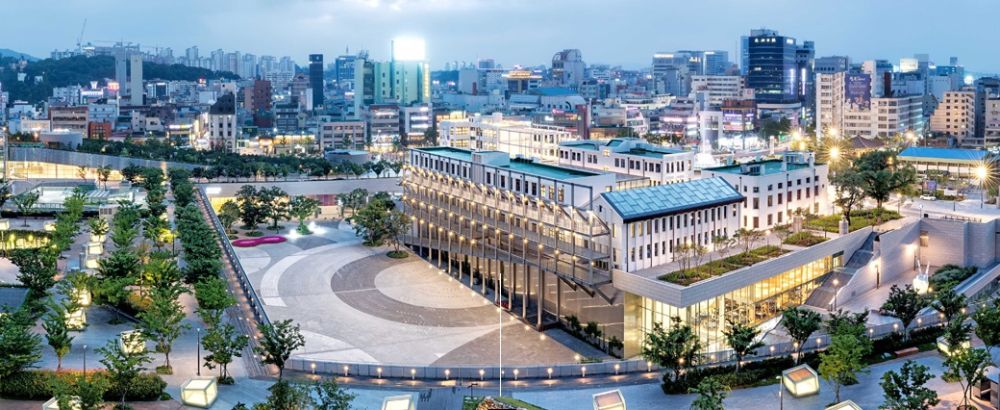

The history of tourism in Gwangju, specifically with regard to the Asia Culture Center (ACC), is intricately connected with South Korea's journey towards democracy and cultural expression. The Asia Culture Center is a relatively new institution, having opened its doors to the public in November 2015. However, the site on which it stands holds profound significance in modern South Korean history.
Situated in the heart of Gwangju, the ACC was built near the May 18th National Cemetery, which memorializes the victims of the Gwangju Democratization Movement or the Gwangju Uprising of May 1980. This location is a poignant reminder of South Korea's struggle for democracy and sets the stage for the ACC's role in nurturing cultural exchange and understanding within Asia and beyond.
The development of the ACC as a major cultural institution has been part of South Korea's broader efforts to promote tourism centered around cultural heritage and contemporary culture. With its establishment, the ACC has become a pivotal venue for artistic and cultural activities, drawing tourists interested in exploring the rich tapestry of Asian cultural expressions.
The Asia Culture Center has had a substantial impact on tourism in Gwangju, with its multi-purpose facilities hosting a range of exhibitions, performances, and conferences. It serves as a hub for the preservation, creation, and enjoyment of diverse Asian cultures. The ACC's comprehensive programs, exhibitions, and archives attract cultural enthusiasts from around the globe, making it an essential stop for travelers interested in contemporary and traditional Asian arts.
The latest trend in tourism at the Asia Culture Center includes an emphasis on interactive and immersive experiences. Visitors are not merely observers but active participants in cultural exchanges, workshops, and dialogues that the ACC organizes. Utilizing advanced technology to create high-tech, innovative art installations and performances, the ACC appeals not just to art aficionados but also to a younger, tech-savvy generation of tourists who seek dynamic and memorable experiences.
In the post-pandemic landscape, the ACC is also embracing digital and virtual technologies to reach a broader global audience. By offering virtual tours and digital editions of their programs, the ACC remains accessible to international visitors who may not be able to travel physically to the center, thereby extending its influence and bolstering its role in cultural tourism.
Eco-friendly tourism is another rising trend impacting the ACC and Gwangju's broader tourism sector. With growing awareness of sustainability issues, the ACC has been incorporating green practices within its operations and promoting cultural activities that emphasize environmental consciousness.
For travelers planning a visit to the ACC, it is wise to check the center's official website for the latest events and exhibitions. Visitors can engage with a variety of programs that showcase the cultural richness of Asia and can delve into educational activities that foster understanding and appreciation of different cultural heritages. The Asia Culture Center not only contributes to Gwangju's reputation as a city of culture but also symbolizes South Korea's ongoing commitment to being a leading facilitator of cultural discourse in Asia.